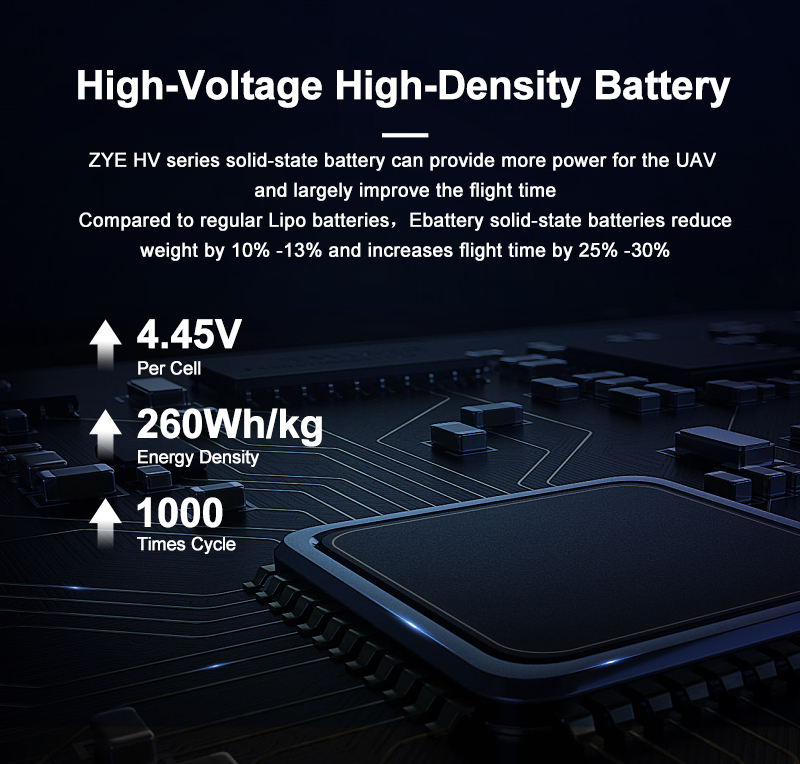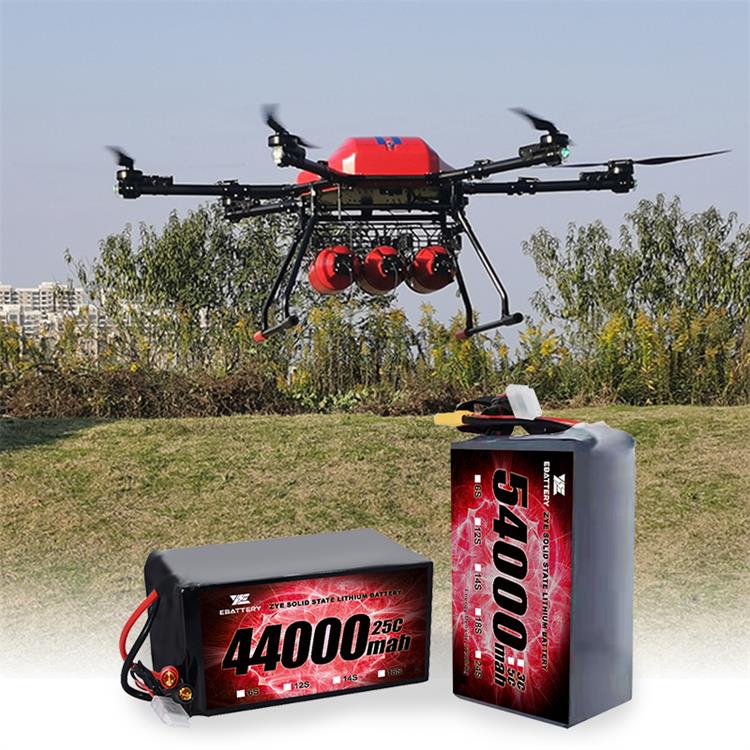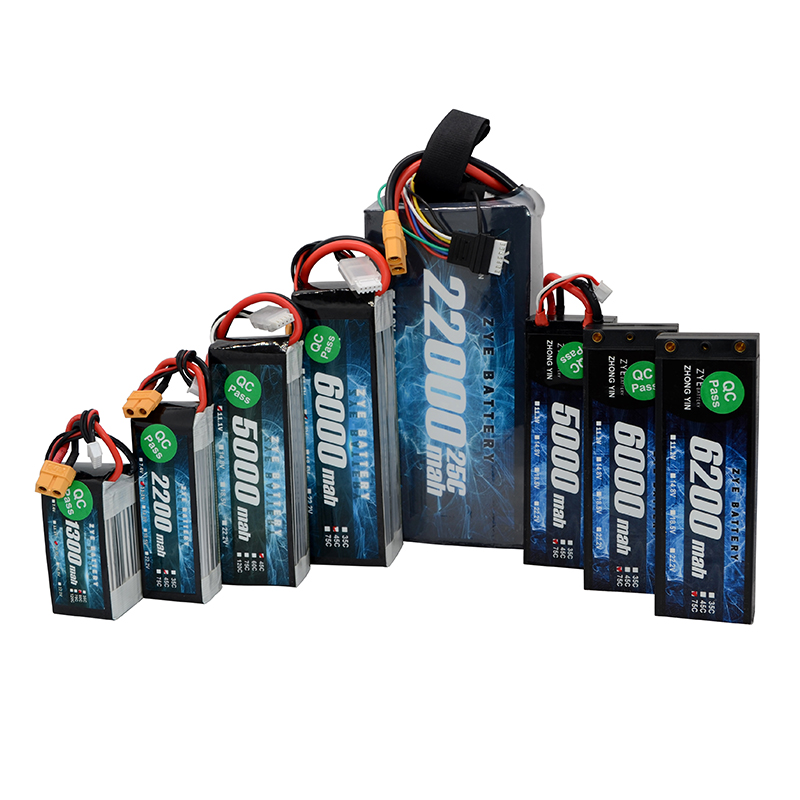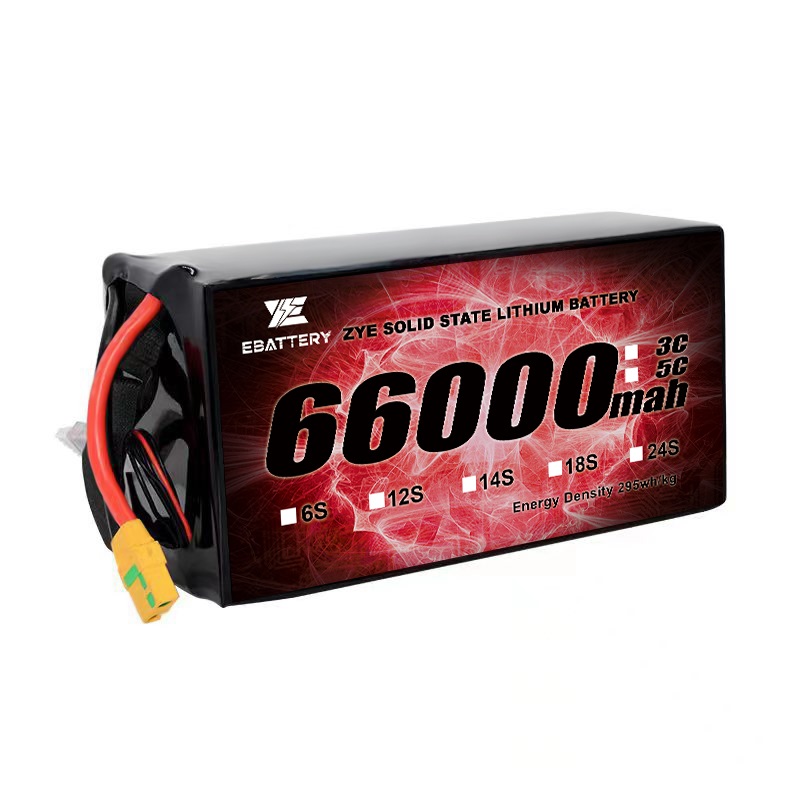What battery does agricultural drone typically use?
2025-09-02
In modern agriculture, where efficiency and precision reign supreme, agricultural drones have become indispensable tools, and their performance is fundamentally tied to the evolution of battery technology.
Lithium-based batteries have emerged as the power source of choice for agricultural UAVs. This dominance stems from their unique ability to balance energy density, weight, and discharge rates—three critical factors in drone operations.
Lithium polymer (LiPo) batteries currently lead the pack in mainstream agricultural applications. These batteries typically deliver energy densities ranging from 150-200 Wh/kg, . This high energy-to-weight ratio is crucial for drones carrying pesticide payloads or multispectral imaging equipment, allowing them to stay aloft long enough to cover meaningful farmland areas.

Engineering for Agricultural Extremes
Farm environments pose unique challenges that demand specialized battery engineering. Temperature fluctuations, chemical exposure, and the need for rapid turnaround between flights push battery technology to its limits.
Smart Batteries: Beyond Energy Storage
Modern agricultural drone batteries have evolved into intelligent systems thanks to advanced Battery Management Systems (BMS). These sophisticated controllers monitor cell balance, temperature, and discharge rates in real-time, preventing overcharging and optimizing performance.
This smart technology translates directly to operational efficiency. Farmers can now predict battery life with precision, plan flight schedules around charging cycles, and receive early warnings about potential issues—all critical for maximizing daily field coverage.

The Future: Semi-Solid State and Beyond
The next frontier in agricultural drone batteries is semi-solid state technology, promising significant leaps in performance. ZYE batteries already delivers 300-400 Wh/kg energy density using silicon-carbon anodes and high-nickel NMC cathodes.
These batteries support 2C charging and over 1,200 cycles while operating reliably from -40°C to 60°C—ideal for diverse agricultural landscapes. With energy densities approaching 330 Wh/kg in prototype form, these advanced batteries could extend flight times by 40% compared to current solutions.
Powering Precision Agriculture's Growth
As drones take on more roles in agriculture—from precision spraying and crop monitoring to seeding and irrigation mapping—battery technology will remain a critical enabler. The market's projected growth reflects the increasing reliance on UAVs for sustainable farming practices that reduce chemical usage and water waste.
For farmers and agribusinesses, choosing the right battery involves balancing multiple factors: flight time requirements, payload capacity, local climate conditions, and budget constraints.

Final thoughts
As technology continues to advance, these power sources will enable the precision, efficiency, and sustainability that modern agriculture demands, ensuring that the world's growing population can be fed by increasingly productive fields.
If you're looking for high-quality LiPo batteries or have more questions about battery care and maintenance, don't hesitate to reach out to our team of experts. We're here to help you get the most out of your battery-powered devices. Contact us today at coco@zyepower.com.
























































